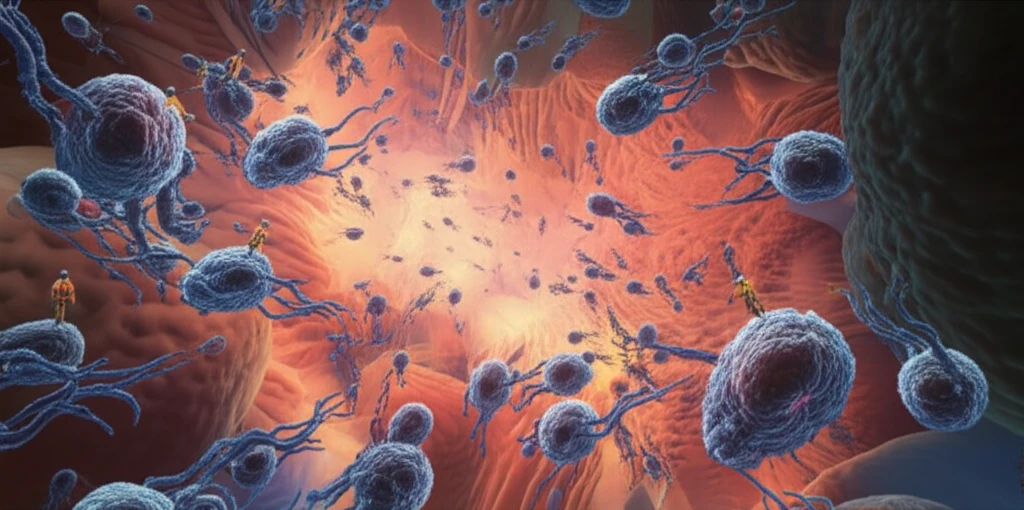
Macrophages: The Unsung Heroes of Your Body's Homeostasis
"Beyond fighting infections, these versatile cells play a crucial role in maintaining balance within your organs, influencing everything from temperature regulation to iron recycling."
For years, macrophages were primarily known for their role in combating infections and aiding tissue repair. However, groundbreaking research reveals that these cells perform a multitude of other essential functions, particularly in maintaining tissue balance (homeostasis) and ensuring organs function correctly. This discovery has led to a re-evaluation of the importance of macrophages in overall health.
Even Elie Metchnikoff, the scientist who discovered macrophages, had a broader understanding of their role, envisioning them as central to a multicellular organism. He believed macrophages could sense disturbances in tissues and respond to damage from both internal and external sources. Importantly, Metchnikoff recognized their vital role in reorganizing and maintaining tissue function by removing dysfunctional elements and unwanted intruders.
Distributed throughout the body in various organs, tissue-resident macrophages act as first responders. They detect stress signals and initiate and regulate both innate and adaptive immune responses, which are crucial for maintaining tissue homeostasis. This understanding emphasizes the need to view macrophages not only as immune cells but also as key players in maintaining overall physiological balance.
The Multi-Faceted Roles of Macrophages: More Than Just Immune Cells

Macrophages are now recognized as regulators of diverse tissue environments and functions, making them vital in both health and disease. Research is uncovering the specific types of macrophages, the regulatory pathways they use, and their impact on organ function. This is not just important for basic science; it also holds significant potential for developing new therapies.
- Temperature Regulation: Macrophages have an unexpected role in thermogenesis (heat production) and maintaining body temperature.
- Metabolic Control: These cells play a key role in governing whole-body metabolism, influencing how the body processes energy and responds to insulin. In particular, macrophages drive obesity-induced metaflammation, which interferes with the metabolic effects of insulin.
- Iron Homeostasis: Macrophages are essential for recycling iron from old or damaged red blood cells, ensuring the body has the iron it needs.
- Electrolyte Balance: Recent research shows macrophages regulate electrolyte balance in the kidneys and other areas.
- Vascular Health: Macrophages interact with blood vessels, influencing angiogenesis (blood vessel formation) and contributing to vascular inflammation and hardening of the arteries.
- Tissue Maintenance: In tissues like the skin and cornea, macrophages help maintain the structure and function of these vital barriers.
The Future of Immunophysiology: Understanding Macrophages for Better Health
The growing understanding of macrophages and their diverse roles has given rise to a new field: immunophysiology. This subdiscipline of physiology focuses on how the immune system, particularly macrophages, interacts with and regulates organ functions.
By identifying the different types of macrophages, the pathways they use to communicate, and their effects on various organs, scientists hope to develop new ways to treat a wide range of diseases. Targeting macrophages could offer novel therapeutic approaches for metabolic disorders, inflammatory conditions, and even cancer.
The discoveries highlighted in this research mark immunophysiology as a crucial area for understanding overall physiology. Continued exploration of these versatile cells promises to unlock new strategies for promoting health and combating disease.
